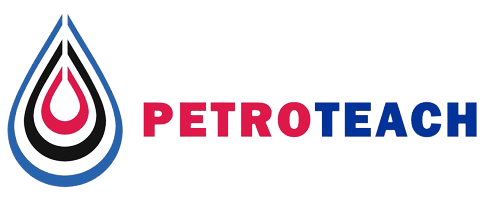GEO 120
Introduction to Basin Modelling
The aim of this course is to practical geological applications of basin analysis studies to petroleum exploration.


The aim of this course is to practical geological applications of basin analysis studies to petroleum exploration.

| Code | Date | Location | price (€)* |
|---|---|---|---|
| GEO 120 | 2 – 5 Sep 2025 | Online | 1990 |
| GEO 120 | 20 – 23 Oct 2025 | Online | 1990 |
| GEO 120 | 18 – 21 Aug 2025 | Stavanger | 3990 |
| GEO 120 | 3 – 6 Nov 2025 | Abu Dhabi | 3990 |
* Prices are subject to VAT and local terms. Ph.D. students, groups (≥ 3 persons) and early bird registrants (8 weeks in advance) are entitled to a DISCOUNT!
The aim of this course is to practical geological applications of basin analysis studies to petroleum exploration. This course takes the trainee up to just below the level of full play fairway and petroleum systems analysis. However, it stresses the importance of basin evolution to petroleum generation, migration and accumulation. It will include worked examples in different types of basins and will be about the combined roles of tectonics and eustasy, palaeoclimate and biotic evolution. The course will concentrate on the practical uses of integrated datasets and how to apply these tools for basin analysis.
Vitrines reflectance
o LECO
o Biomarker analysis
o Rock-Eval Pyrolysis
o TOC, HI, and OI Interpretation methods
o Source rock types
o Quality of source rock
o Kerogen types
o Source rock characterization methods
o What is petroleum system?
o Essential elements
o Essential events
oWhy Petroleum system modeling?
o Exploration and drilling risks
o Field development
o Connection between reservoirs
o What is the work flow of petroleum system modeling? o Back striping, Decompaction
o Forward modeling compaction and effects on porosity and heat transfer
o Heat flow modeling
o Maturity modeling
o TTI and Easy Ro method
o Event chart
o Input, available and output data
o Methodology for calculation
o Multi-dimensional basin modeling work flow
o What is a two dimensional basin model?
o What is a three dimensional model?
o Numerical solutions in hydrocarbon generation and migration
o Introduction to software applications used in basin modeling and comparing them
o PBM, BasinMod, Temis, PetroMOD, Permedia
o Workflow of an exploration study and Risks
o Presenting a real world full geochemistry and 1D to 3D basin analysis study

Dr. Afshin Fathiis a petroleum engineer with expertise in basin modeler and organic geochemist. He has more than 15 years of experience in the petroleum industry exploring conventional and unconventional hydrocarbon resources. His educational background in petroleum engineering, petroleum exploration, and mining exploration provides him with great abilities to understand and solve HC exploration problems. He developed new ideas and technologies which led to publishing several papers and two patents. He has experience in basins located in North America, Europe and northern part of the Arabian plate. During his career, he instructed lectures, presentations and on job training for different geological communities, companies and universities, including Polytechnic University of Tehran, Tehran University, National Iranian Oil Company, RIPI, POGC, Canada’s Energy Geoscientists. His research interests are: Applications of Data science in petroleum exploration, organic geochemistry, basin modeling, software development, conventional and unconventional resources exploration. Afshin is a member of AAPG, HGC, HOGC, SPE, and APPIH.
This course is design for geologists, geophysicists and exploration engineers involved in new ventures or exploration who require the skills to evaluate petroleum systems and their hydrocarbon potential. Depends on their experience they should attend to introduction, intermediate and advance level.
o Intermediate
After completing this course, participants will be familiar with the following:
o Exploration, data analysis and interpretation
o Source rock evaluation
Understand basin-forming processes and basin architecture
o Evaluate controls on sediment generation, transport and deposition
o Review key analytical techniques with a focus on burial history analysis
o Apply and integrate datasets to model basin evolution
Registration is now OPEN!
* Prices are subject to VAT and local terms. Ph.D. students, groups (≥ 3 persons) and early bird registrants (8 weeks in advance) are entitled to a DISCOUNT!
For more details and registration please send email to: register@petro-teach.com
Would you like a PetroTeach training course delivered at a time or location to suit you?
click for request in house